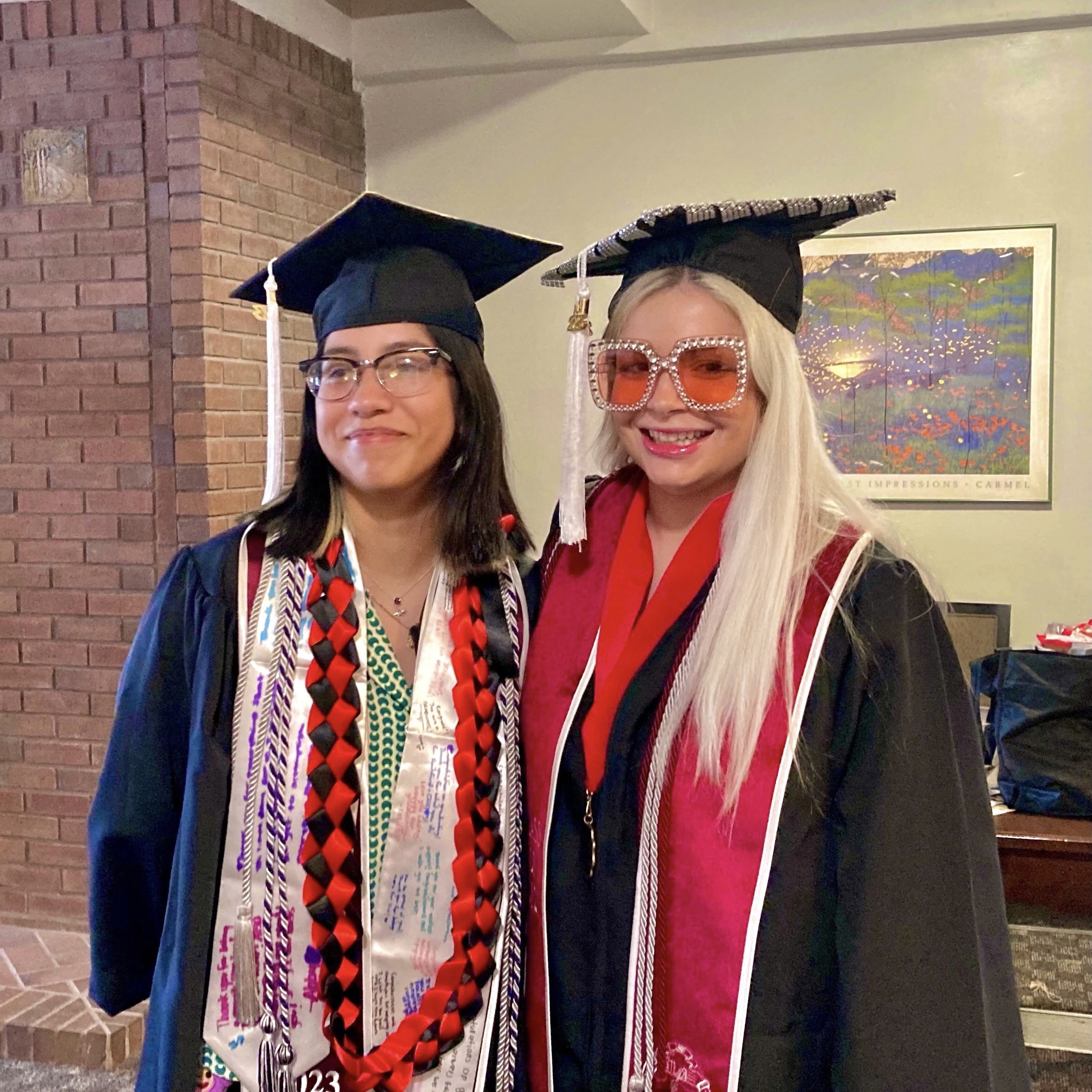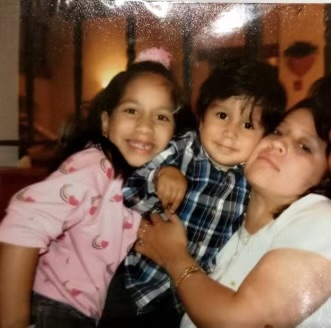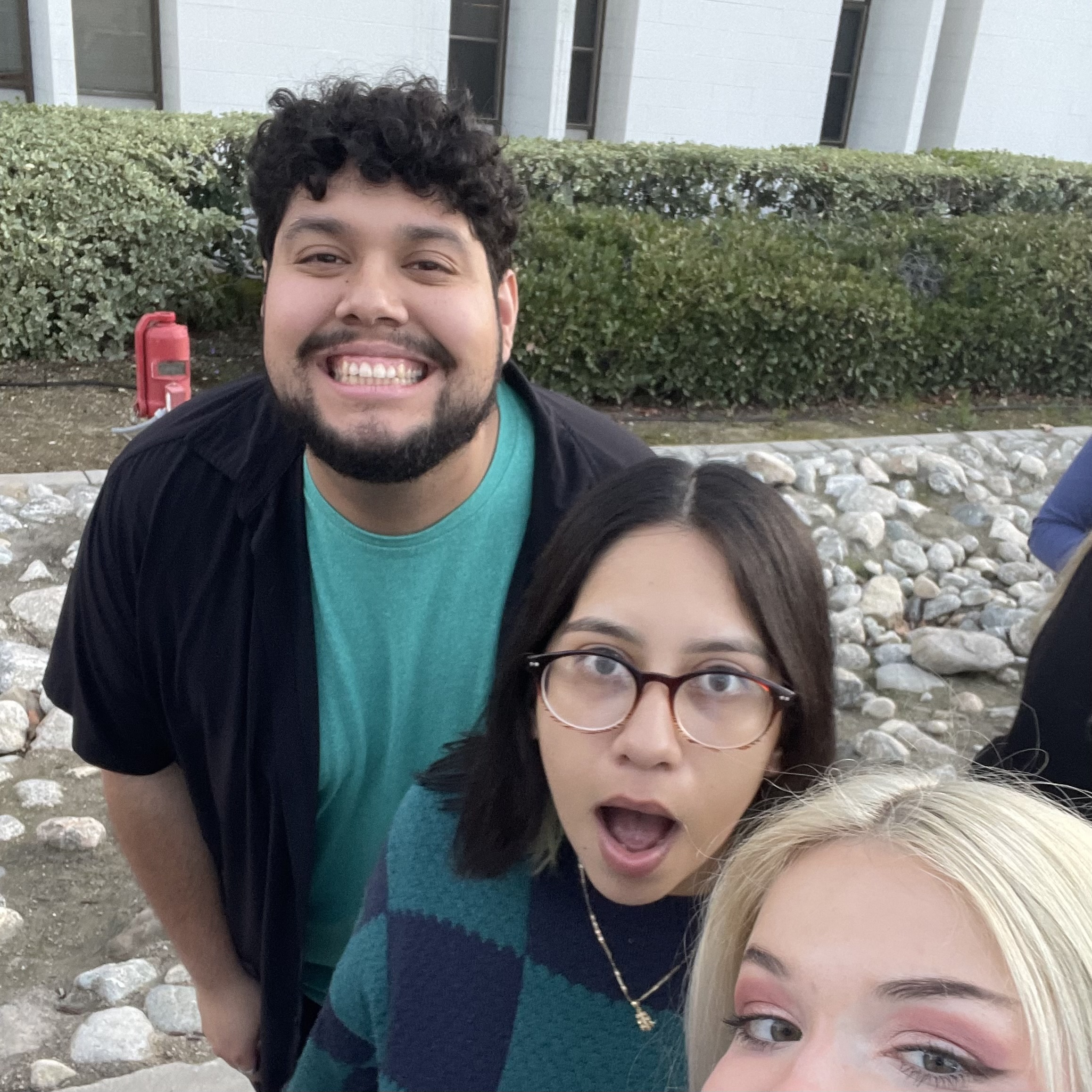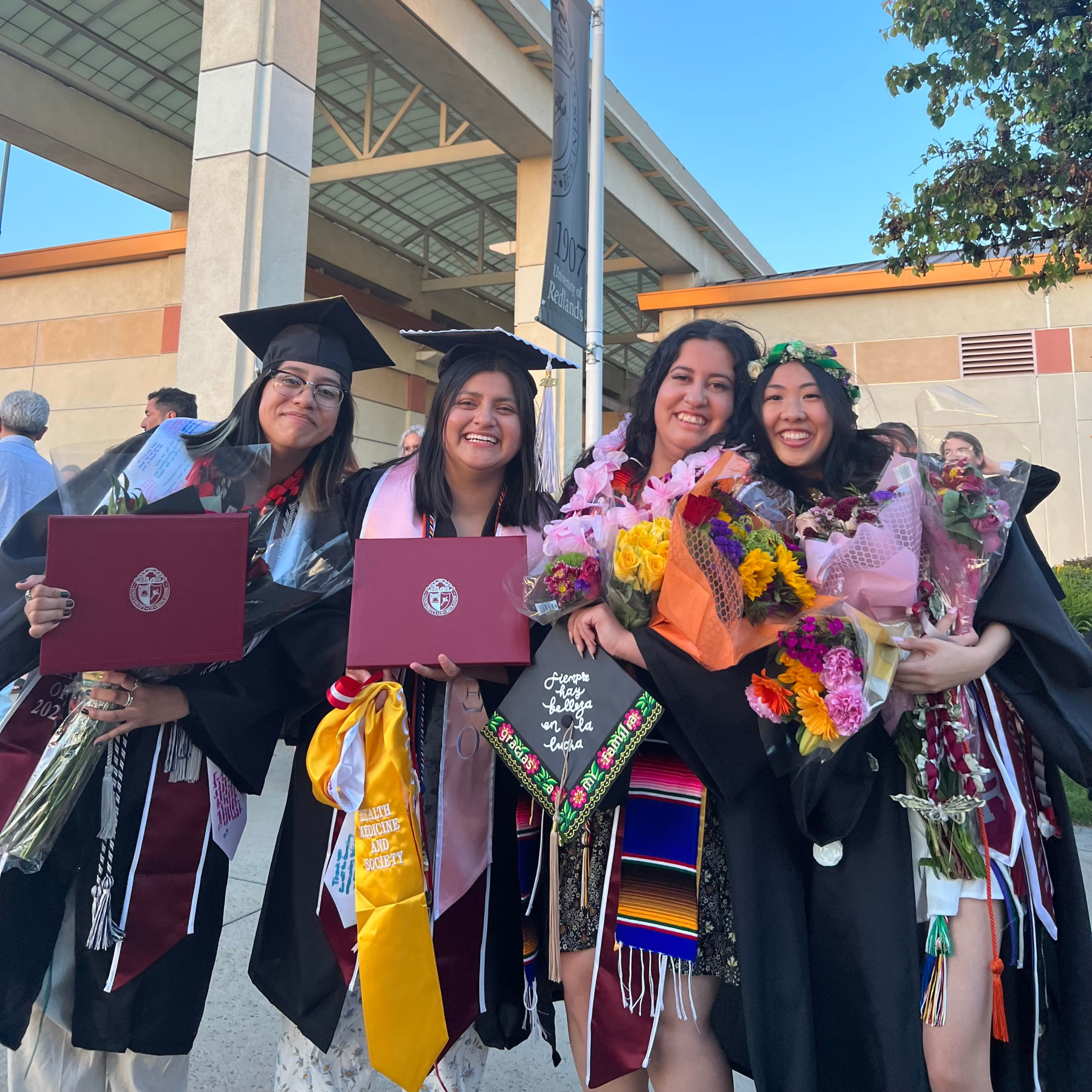Kite Writer Jane Cooper interviews Lesley Ann Bello, a first-generation college student who balances working three jobs with attending graduate school. This is part one of two.
A Love Letter to Lesley Ann
There’s someone out in California who knows what I ate for breakfast this morning. She’s on her way to class in her heather-gray Nissan, blasting the new Zayn album at top volume.
As a grad student working three jobs, her schedule’s pretty packed, but she still manages to find time to drive 20 miles to visit her mom in Fontana. She also bakes – blondies and brownies are her specialty.
Lesley Ann Bello and I met in a Class of 2023 group chat that was created the summer before our freshman year. And when the COVID-19 pandemic hit when we were sophomores, our online friendship was solidified.
As seniors, we roomed together in the dorms – our University requires its undergraduates to live on-campus for all 4 years – and we often talk about that year as if we spent it abroad in Paris, instead of a 200-square-foot closet.
“If only we could go back,” I texted one day.
“Going to call the University and ask them to rent the dorm out to us for 10 years,” she responded.
I wanted to sit down and interview her about what it was like to be a first-generation student at our university. Neither of Lesley’s parents attended college, and coming from a Mexican immigrant family, she faced struggles and pressures unique only to first-gens.
In Part 2 of this article, we explore her experience applying to scholarships and financial aid, including FAFSA difficulty, her transition into graduate school, and the college application process that left her with little guidance.
For now, let’s get to know Lesley Ann Bello, the hardest worker I know.
“Ann is not my middle name,” she clarifies. “I have two first names and one last name. Lesley Ann… Bello.”
Introduction
Where are you from?
I’m from San Bernadino, California.
Where are your parents from?
My parents are from Veracruz, Mexico.
When did they move to the US?
In 1998, so about 26 years ago.
How many siblings did your parents have?
My mom had four siblings, and my dad had 7.
Did your parents attend college?
They did not attend college. My mom has a middle school education level, and my dad has a high school education level. However, in Mexico they have their version of a vocational/trade school, and my mom received an informational secretary education. My dad graduated high school on track to be an engineer.
How many siblings do you have? Are they in college?
I have a younger brother (19), who is studying Computer Science at a Californian university.
What degree(s) did you graduate with?
I graduated with a BA in Psychology and a minor in Studio Art.
The First-Generation Experience
What does it mean to you to be a first-generation college student? How has that affected your time in college?
I realized early on that I had to stand up for myself, because no one else would; especially in the education system that sets POC (people of color) up to fail. Being first-gen means being an advocate for both myself and those coming after me. I want to set an example that we are not just a statistic – we can do this, and we will be something in life.
First-gens are not just numbers or faces on a brochure. We have something to give to this world. It means we need to work harder than others, because we don’t have things handed to us. During college, this made me question if I could really do it. But I knew my family was relying on me to set the example for my younger brother and our family friends.
How closely is your culture tied to your identity?
This is something that I have been thinking about a lot more as an adult. It has taken me a long time to be comfortable with who I am and where I come from. Growing up, I would say my culture was not tied to my identity. If anything, I tried to stay away from my culture. I didn’t really want to be associated with that. I hated my brown, tan skin.
I didn’t want to engage/participate in Mexican related activities. Like being in Folklorico dance classes, or wearing Mexican-related attire. I don’t know where that came from, because I grew up in a primarily Hispanic-dominant town. I didn’t have many white friends or relationships. But being Mexican-American was all I knew.
Now, as an adult, I try really hard to incorporate it into my life and my identity. I take pride in my culture. Not many people can say that their Mexican parents made a life of their own here, all by themselves. So this is a mixed-feelings response.
What struggles did you have because you’re a first-gen college student?
I had no support system that could help or guide me when navigating college, both as an undergraduate and now as a grad student. I relied heavily on the support system I created on campus. Without that, I would have probably dropped out.
I would not be who I am today without my mentors, who helped me tremendously – and still do. They assisted me with so much – doing professional interviews, helping me with applications, etc. I didn’t know how to do any of that. I didn’t even know what to expect, and they prepared me for that. None of my family or family friends have attended college, so I was/am on my own for the majority of this journey.
Privilege was something I did not have to witness until I attended college and was exposed to different things. As the oldest in a Mexican household, I did everything on my own. I had to become independent very early on. But to see other students with so much privilege was astonishing.
I had to remind people so often that things were different for me; that I couldn’t do everything they did. I didn’t have the financial stability many had. Having to explain that was so difficult and repetitive. It was annoying. It made me frustrated with who I was, and why this had to be my life. I wanted what other people had, and it was a feeling that stuck with me for so long.
I also still had the responsibility of my family, even if I was living on campus. I was still tied to my parents. Most of the time, I had to be the parent. Not everyone understood that. Eventually I realized this was called imposter syndrome, which is something common among many first-gen students.
family, and work?
Yes. I started off with one job during college, but then ended up with 2 jobs during my junior year all the way until I graduated. I definitely struggled more than I would like to say with balancing work, school, and family. No one taught me how to have a balance, so it was unhealthy.
I still am learning how to have a healthy balance. I had a lot of sleepless nights, because I didn’t prioritize and I procrastinated a lot. I definitely used work as an excuse as to why I would fall behind, when all I needed was better organizational and scheduling skills.
What does your family think about you going to college? How do they support you or
make things more difficult?
Oof. I think my mom is proud – she doesn’t really say that, so I will speak for her. However, she is supportive in her own ways. It has taken me a while to realize that. My brother is in school, so he knows that education is important. I hope this makes him go to graduate school as well. However, they sometimes do make this journey difficult.
Boundaries is something they struggle with, so it makes it hard to concentrate on school when I also need to be present with family. My dad views this as just me going to school so I can receive a bigger check when I start my career. He doesn’t realize that I am in this to help other people and to assist those who need it. That’s the major difference in the support I get from my parents. My mom understands the importance of what I want to do, but my dad doesn’t.
Do you feel that some universities capitalize off of their first-generation students for marketing/diversity purposes?
It is so frustrating. Like, yes, it’s great that we get exposure, but also… not. Half the time, it isn’t even that diverse – it’s just a lie. The funny part is that when the photographers are around, they go looking for the POC first-gen kids. It’s like they can smell you. We would always stay away from them.
What elements of your culture did you bring to school?
My mom’s cooking. Almost everyone would eat it or know about it. It was nice to have that aspect of my culture on campus. Especially seeing my friends eat it, or when I would bring them home. I would also teach some friends certain sayings in Spanish. Sometimes our cultures would overlap, or they would be curious and I would teach them something about my traditions. That was always fun.
Is there anything else you’ve learned from your experiences and/or from other
first-generation students?
Having a support system and community is so important, and I am so thankful for mine. Without this, I would not have survived college. I have learned that being first-gen can mean many different things, and that we need to come together rather than trying to be better than each other. All we really want is to belong and, to feel wanted, heard, and welcomed. We are stronger and bigger than what people think.
Stay tuned for Part 2, in which we explore Lesley’s perspective on the first-generation financial aid process.







